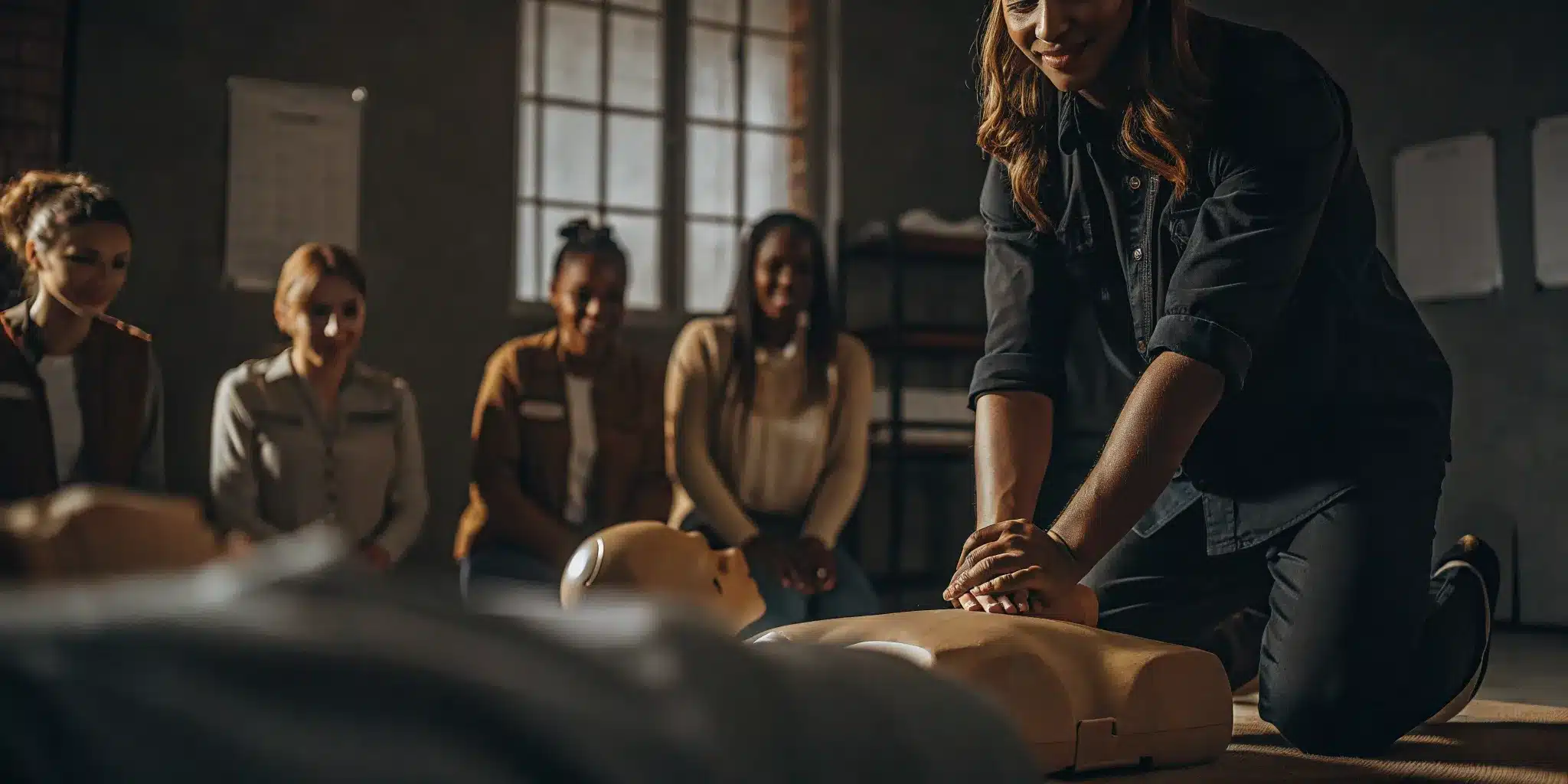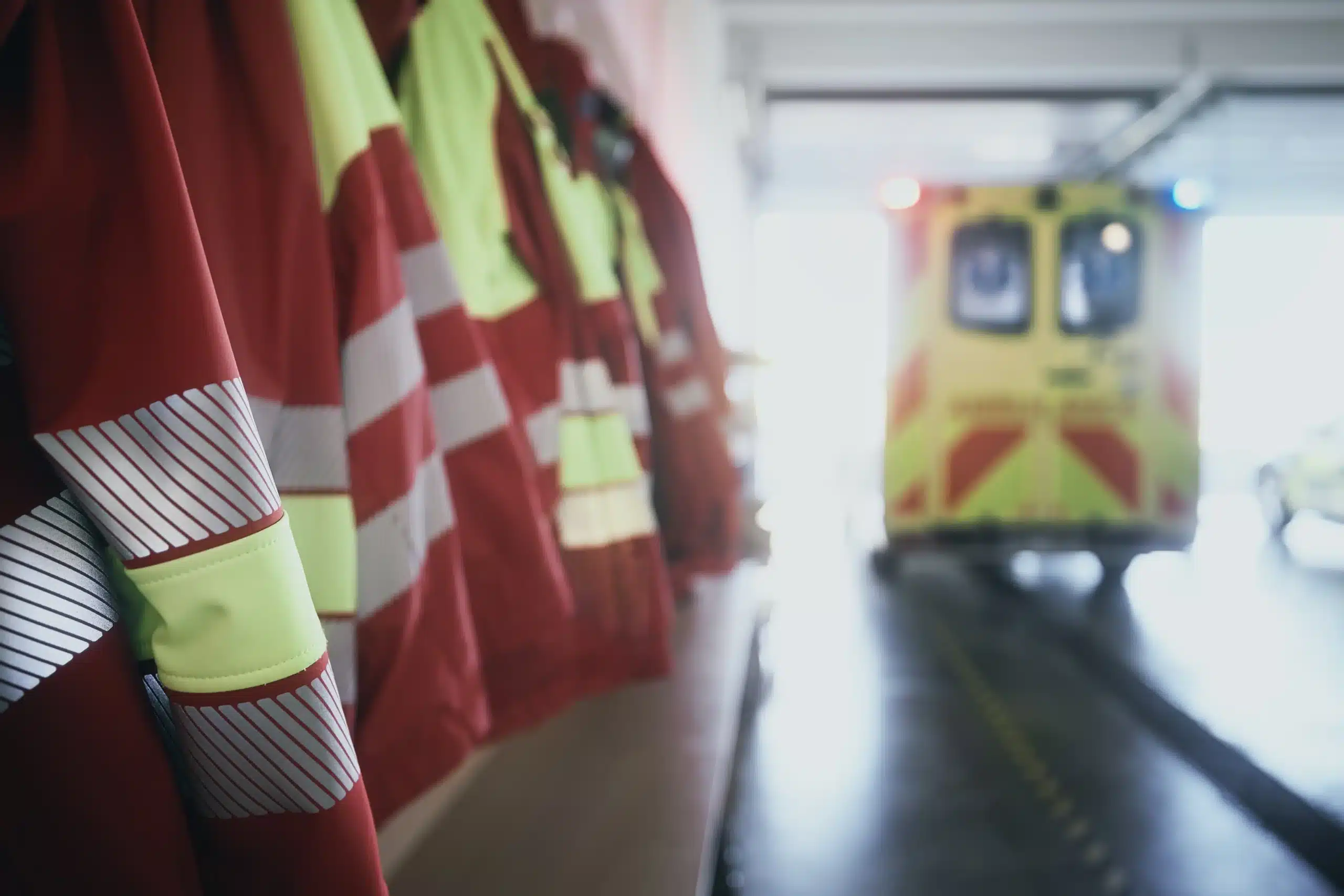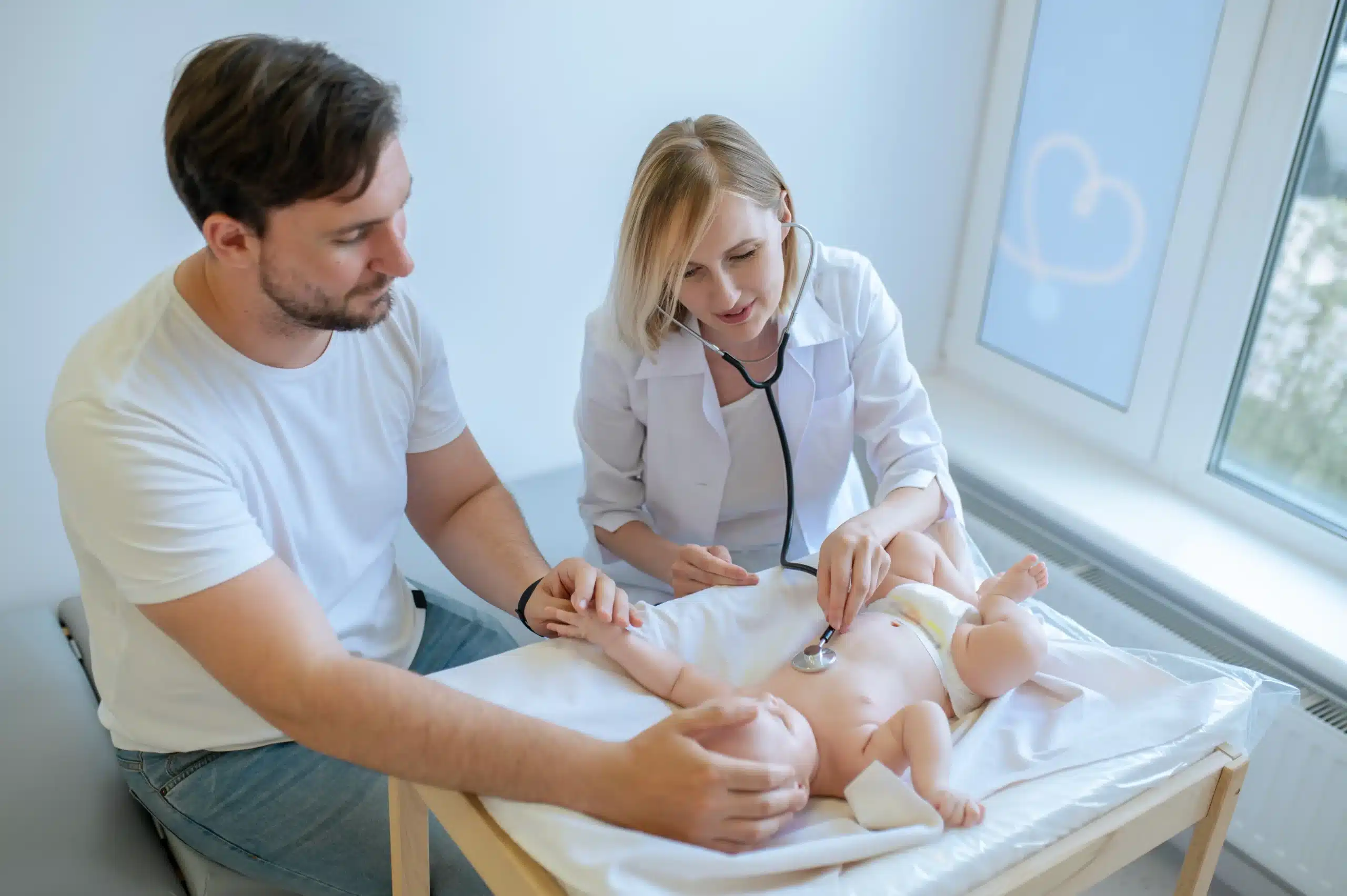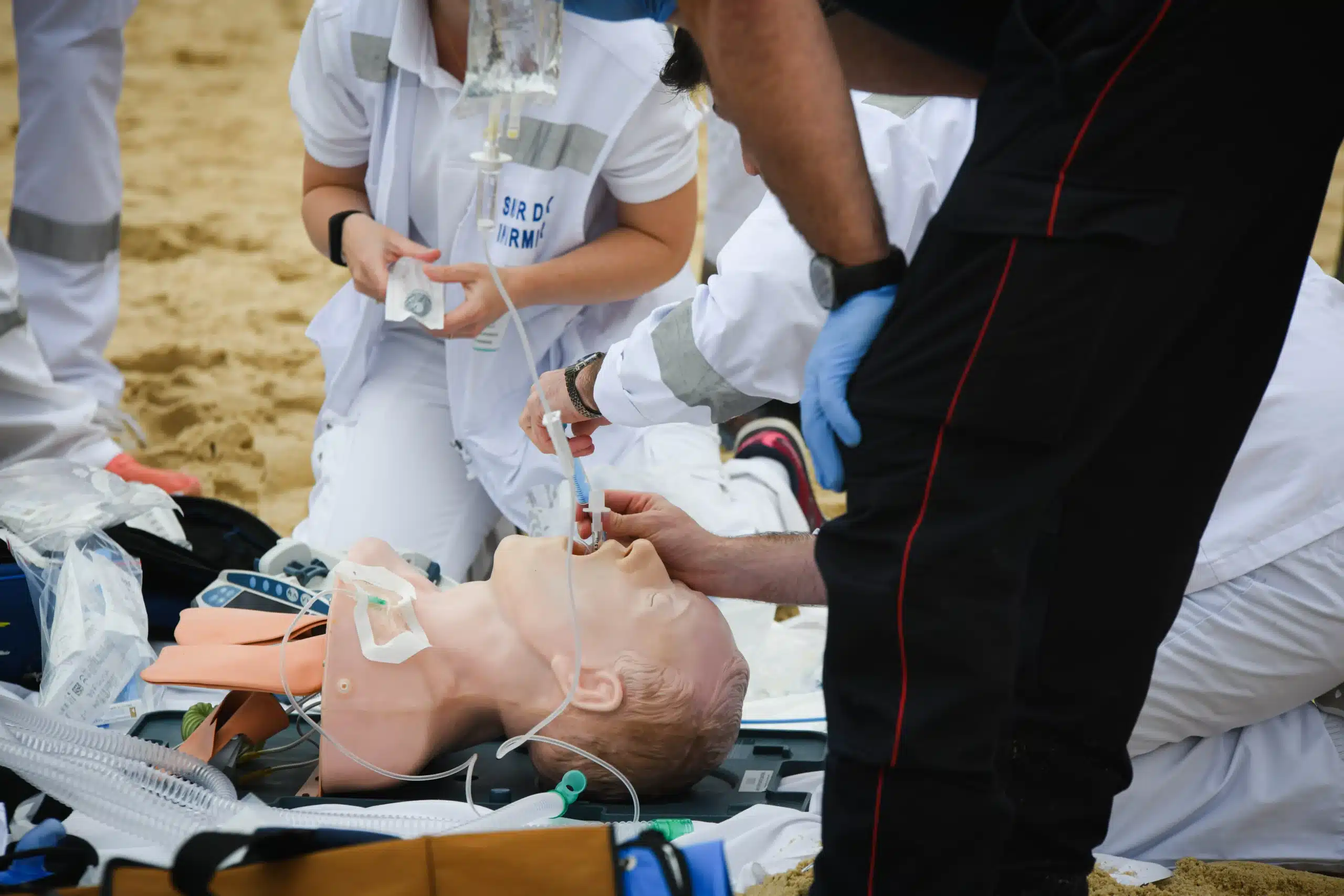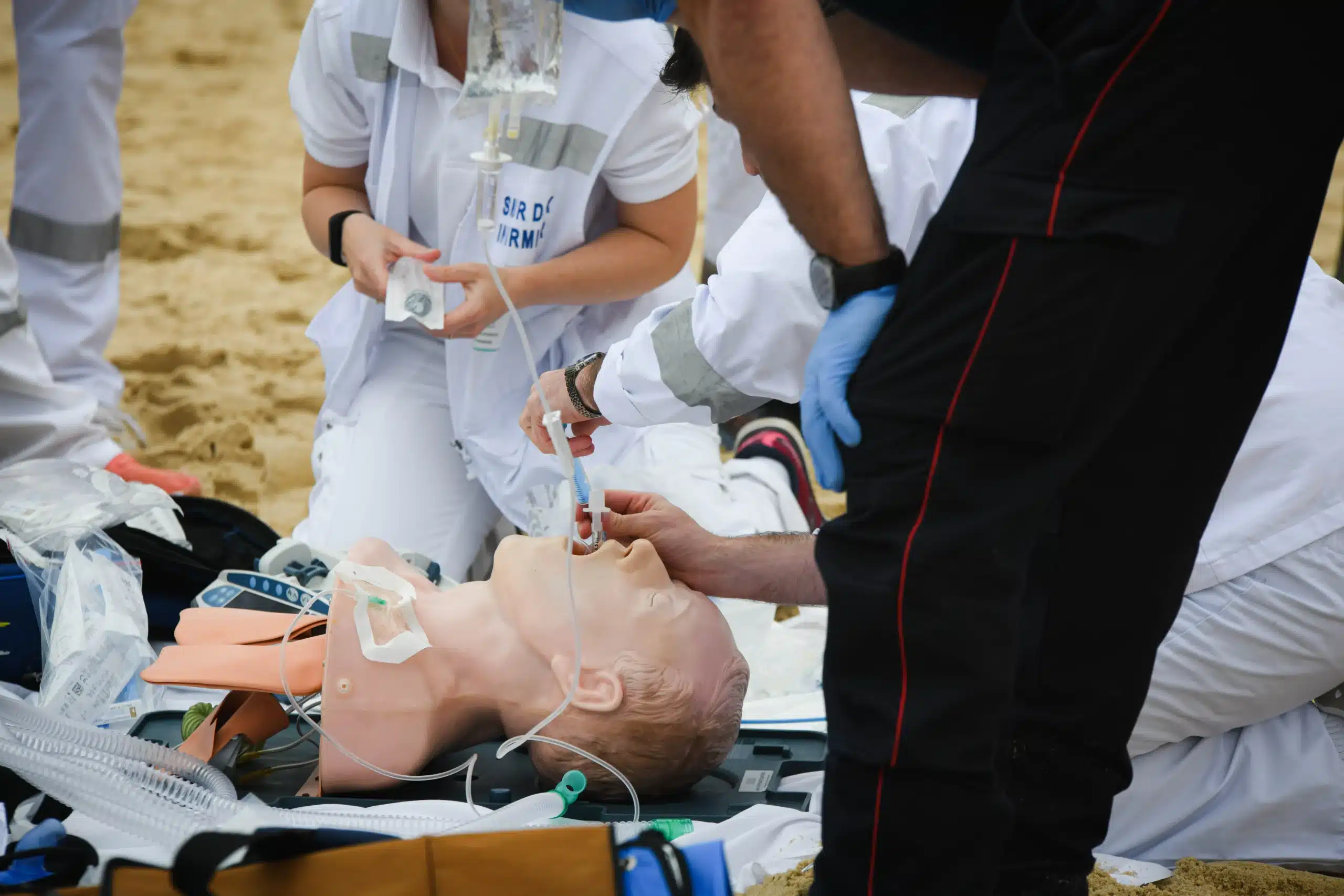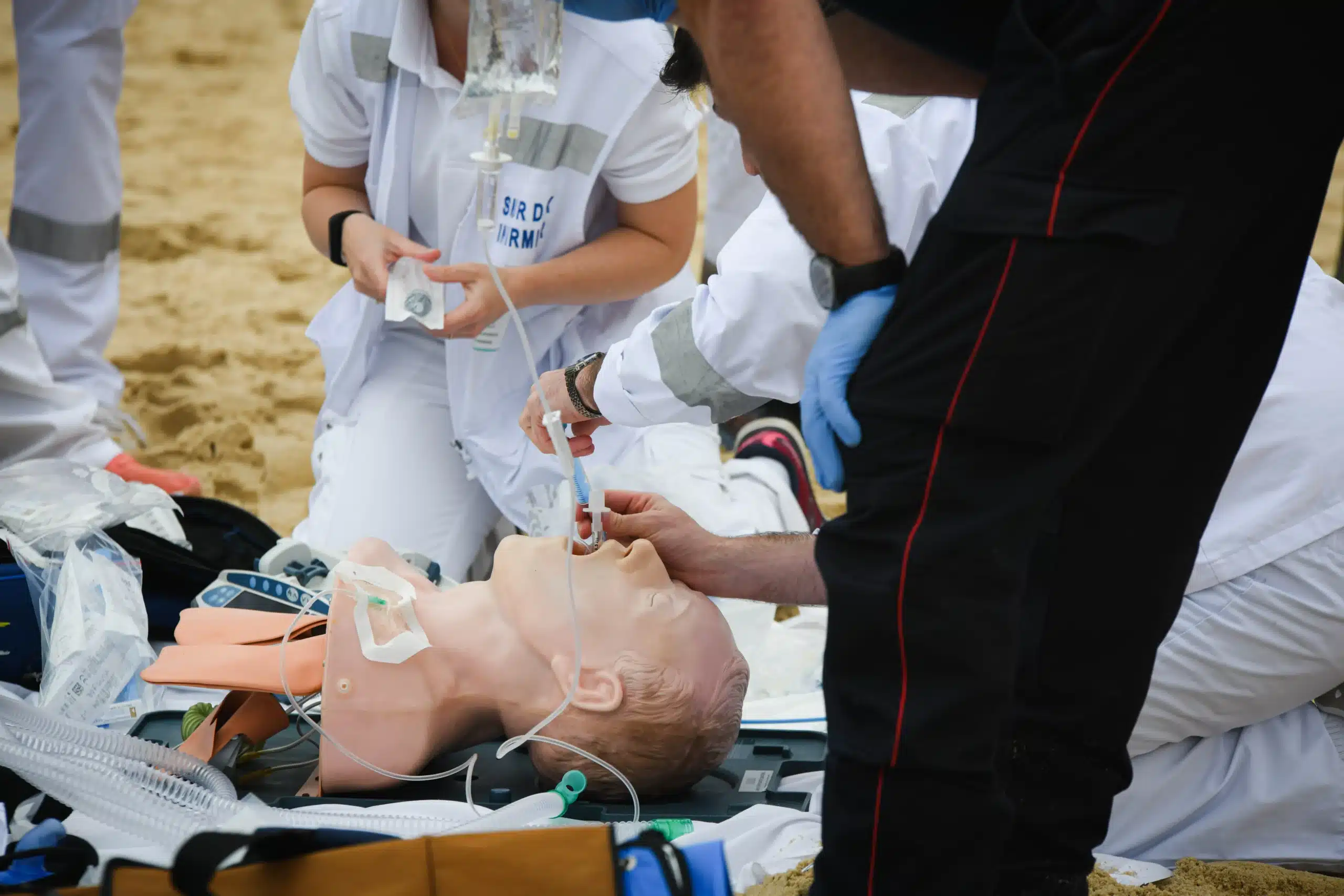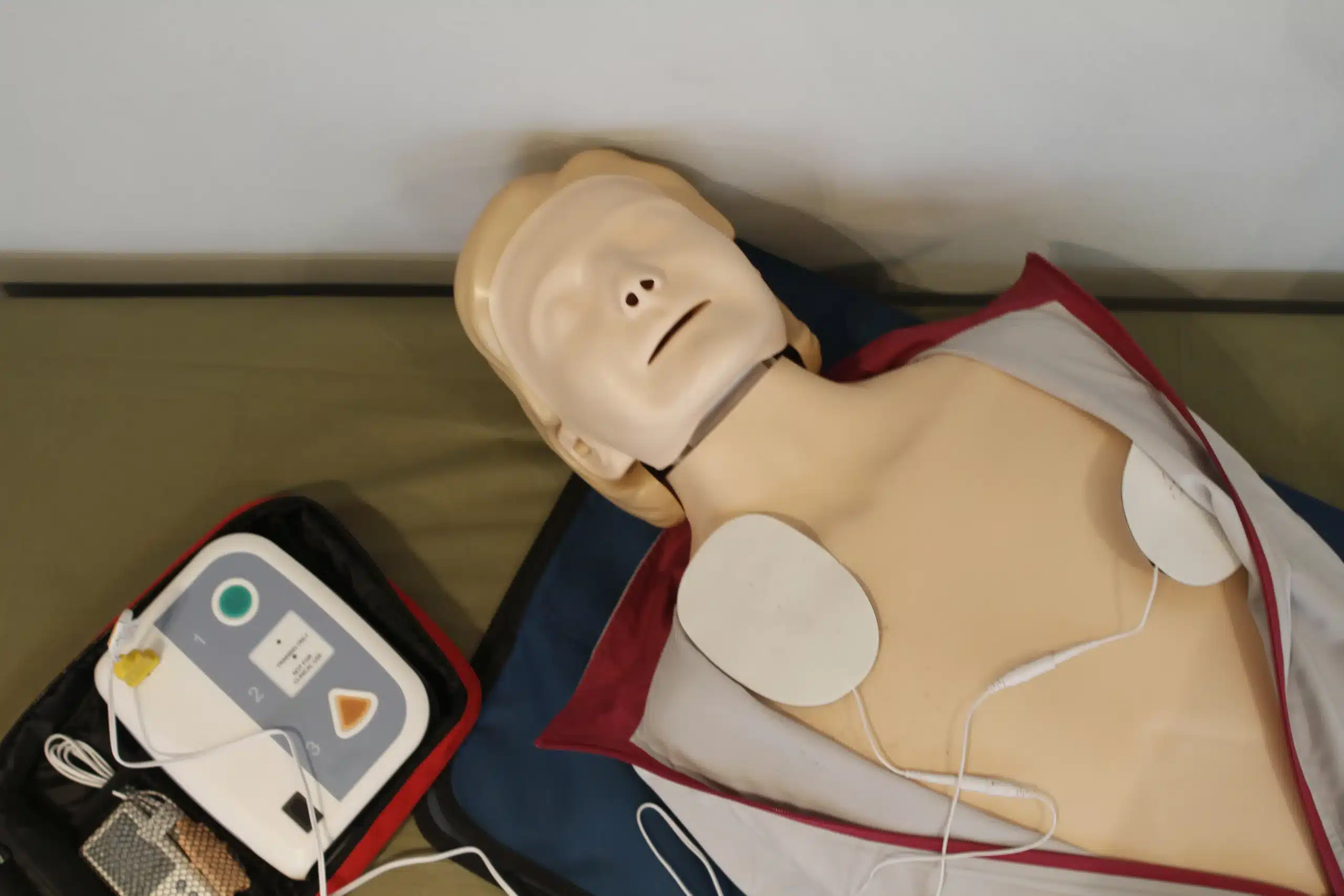Knowing what to do in a medical emergency can make all the difference. Basic Life Support (BLS) training equips you with the skills to respond effectively to life-threatening situations, from providing CPR to using an AED. Whether you’re a healthcare professional, a concerned parent, or simply someone who wants to be prepared, BLS certification empowers you to act confidently and potentially save a life. This guide covers everything you need to know about BLS courses in Pleasanton, from finding the right class to understanding the skills you’ll gain. We’ll explore the benefits of BLS certification, the different types of courses available, and how to choose a reputable training provider. Let’s get started.
Key Takeaways
- BLS certification provides essential life-saving skills: Learn to recognize and respond to medical emergencies like cardiac arrest, administer CPR, and use an AED. Find a course that suits your needs, whether you’re a healthcare provider or simply want to be prepared.
- Pleasanton CPR Classes offers accessible and convenient training: Get your BLS certification with a focus on customer satisfaction, a low price guarantee, and courses available daily. Explore their website for BLS, ACLS, PALS, CPR, and First Aid options.
- Maintain your skills through recertification and continuing education: Keep your BLS certification current and your skills sharp with recertification courses and programs like RQI. This ensures you’re always ready to respond effectively in a crisis.
What is BLS?
BLS stands for Basic Life Support. It’s a critical set of skills healthcare providers and first responders use to manage life-threatening emergencies. Think of it as a more advanced version of CPR. While CPR focuses primarily on chest compressions and rescue breaths, BLS covers a broader range of skills, including recognizing and responding to respiratory distress and cardiac arrest. It also emphasizes early intervention and teamwork during a crisis. BLS certification often includes training on using an automated external defibrillator (AED). This equips people to provide more comprehensive care in those crucial first few minutes.
BLS teaches healthcare professionals—like doctors, nurses, paramedics, and EMTs—how to handle both breathing and cardiac emergencies for adults, children, and infants. This specialized training goes beyond standard CPR to include techniques for airway management and other critical interventions. If you’re considering a career in healthcare, BLS certification is often a required skill. Even if you’re not pursuing a medical career, having BLS training can give you the confidence to respond effectively in an emergency, providing immediate assistance while waiting for professional help. Learn more about our BLS courses and how they can benefit you.
Best BLS Course Providers in Pleasanton
Finding the right BLS course provider is crucial for receiving quality training and a recognized certification. Here are some top BLS providers in Pleasanton:
Safety Training Seminars
Safety Training Seminars, a woman-owned American Heart Association Training Center, offers high-quality BLS, ACLS, PALS, CPR, and First Aid courses in Pleasanton. They prioritize customer satisfaction, offer a low price guarantee, and provide classes seven days a week. Serving Pleasanton, Dublin, and San Ramon, they make accessing these essential skills convenient. Learn more about their BLS course. They also offer discounts for group classes.
Bay Area CPR
Bay Area CPR recommends Safety Training Seminars for AHA BLS, ACLS, and PALS certification in Pleasanton. This endorsement highlights Safety Training Seminars’ strong reputation as a trusted provider.
CPR Education
CPR Education provides CPR and first-aid training in and around Pleasanton. Certified by the American Heart Association, they offer various courses, including BLS CPR, pediatric CPR, and first aid for individuals and groups.
American Heart Association Training Centers
The American Heart Association (AHA) offers BLS CPR classes to equip individuals with life-saving skills. These Pleasanton courses cater to a diverse audience, including healthcare professionals, first responders, educators, childcare providers, and the general public. AHA certification ensures your training meets the highest standards.
What Will You Learn in a BLS Course?
This section covers the different types of BLS courses available and the essential skills you’ll gain. Knowing what to expect can help you feel prepared and confident going into your training.
Types of BLS Courses
BLS courses offered by the American Heart Association in Pleasanton cater to various people, including healthcare providers, first responders, educators, childcare providers, and the general public. Safety Training Seminars offers BLS certification designed to meet the specific needs of these groups. Whether you’re a medical professional maintaining your credentials or someone wanting to learn essential lifesaving skills, there’s a course for you. Check with your employer or licensing board to ensure you enroll in the correct BLS course for your profession.
Key BLS Skills
BLS courses equip you with the skills to respond effectively to various emergencies. You’ll learn how to recognize the signs of a cardiac arrest, administer high-quality CPR, use an AED, and provide relief for choking victims. These courses cover essential techniques for single-rescuer and team-based resuscitation scenarios. The goal is to give you the confidence and competence to act quickly and potentially save a life. The curriculum often incorporates the latest AHA guidelines and best practices, including the importance of high-quality chest compressions and effective ventilation techniques. You can find more information about our RQI program on our website.
Find a BLS Class That Fits Your Schedule
Finding a BLS class that meshes with your busy schedule shouldn’t be a struggle. Thankfully, there are options designed to make training accessible to everyone.
Daily Class Options
If you’re looking for CPR classes in Pleasanton, consider checking out Safety Training Seminars for their AHA-certified BLS, ACLS, and PALS courses. They offer these courses, along with CPR and First-aid training, seven days a week in Pleasanton and surrounding areas like Dublin and San Ramon. This daily availability takes the guesswork out of scheduling and lets you choose a class that truly works for you.
Online & In-Person Training
Many providers understand that your time is valuable. That’s why blended learning options, combining online coursework with in-person skills sessions, are becoming increasingly popular. The American Heart Association’s RQI program is a prime example of this modern approach. RQI certification, offered by providers like Safety Training Seminars, allows healthcare professionals to complete a portion of their BLS training online at their own pace. Then, they demonstrate their skills in a brief, focused in-person session. This flexible format makes it easier to fit essential training into a demanding work schedule. Providers like Bay Area CPR also offer this convenient combination of online learning and hands-on skills testing.
BLS Course Costs & Discounts
Knowing the price range for BLS certification and available discounts helps you budget and plan your training. This section breaks down typical costs, potential discounts, and any additional fees you might encounter.
Standard BLS Course Prices
BLS course prices in Pleasanton, California, vary based on the training center and the type of course. Safety Training Seminars offers American Heart Association BLS courses and strives to provide competitive pricing for this essential training. Providers like Safety Training Seminars, often listed on aggregator sites like Bay Area CPR, frequently offer similar price points for comparable courses.
Discounts & Promotions
Many training centers offer discounts, so it’s always a good idea to ask. Pleasanton residents may find special promotions or student discounts for BLS courses. Registering with a group of colleagues or friends can unlock savings with group discounts. Healthcare professionals renewing their certification might find cost savings through the RQI program.
Additional Fees
While the advertised course price generally covers the core instruction and materials, clarify any potential extra fees. These might include certification card fees or online access codes. Understand the training center’s refund and rescheduling policies. Some providers have fees for cancellations or rescheduling close to the class date. Knowing this upfront prevents unexpected costs.
Meet Your Certified BLS Instructors
When your health is on the line, you want to know you’re in capable hands. At Pleasanton CPR Classes, our instructors bring extensive knowledge and experience to every Basic Life Support (BLS) course. We’re committed to providing you with top-notch training, so you feel confident and prepared to respond to emergencies.
AHA Certification Requirements
Our instructors are certified by the American Heart Association (AHA) and meet their rigorous standards. This certification ensures they’re equipped to teach the latest, evidence-based BLS techniques and guidelines. The AHA’s comprehensive program covers a wide range of skills, from recognizing life-threatening emergencies to providing high-quality CPR for adults, children, and infants. The training also includes using an automated external defibrillator (AED) and relieving choking. Whether you’re a healthcare provider, first responder, or community member, our instructors can help you master these essential skills.
Emergency Response Experience
Beyond their certifications, our instructors have practical experience in emergency response. They understand the real-world challenges of providing care in critical situations. This experience allows them to offer valuable insights and answer your questions thoroughly. They can also provide context to the techniques you’ll learn, making the training more engaging and relevant. Our instructors’ experience helps bridge the gap between the classroom and real-life scenarios, giving you the confidence to act quickly and decisively in an emergency.
Ongoing Training & Updates
The medical field is constantly evolving, and so are our instructors. They participate in ongoing training and refreshers to stay current on the latest AHA guidelines and best practices. This commitment to continuous learning ensures you receive the most current and effective training available. You can be confident that the skills you learn in our BLS courses align with the latest advancements in emergency cardiac care. We believe in empowering our students with the most relevant knowledge and techniques to provide the best possible care.
Get Your BLS Certification
Getting your BLS certification is straightforward and rewarding. Here’s what you can expect:
Course Structure & Duration
BLS courses are designed to be comprehensive and accessible. Whether you’re a healthcare provider, first responder, teacher, or concerned citizen, the BLS CPR classes offered by the American Heart Association in Pleasanton cater to various backgrounds and experience levels. Safety Training Seminars provides AHA certifications, including BLS, ACLS, and PALS.
Exams & Skills Assessments
You’ll participate in hands-on training and learn essential life-saving techniques. The American Heart Association RQI program is a popular option for medical professionals seeking BLS, ACLS, and PALS certifications. This program uses regular practice and skills assessments to build confidence and prepare you for real-world emergencies.
Receiving Your BLS Card
After successfully completing the course and skills assessments, you’ll receive your official American Heart Association BLS certification card the same day. You’ll leave the class ready to use your new skills. These AHA BLS CPR classes empower people to respond effectively in emergencies and potentially save lives.
Choose the Right BLS Course
Finding the right BLS course means considering a few key things to make sure it fits your needs and learning style. Let’s break down how to evaluate different courses and providers.
Compare Course Features
BLS courses aren’t all the same. Before signing up, compare what each course offers. The American Heart Association offers BLS CPR classes in Pleasanton for different groups—from healthcare providers and first responders to educators and the general public. This ensures the content is relevant to your background and job. Consider whether a provider, like Safety Training Seminars, offers combined certifications, such as ACLS, PALS, and First Aid. This can be a convenient way to get multiple certifications at once.
Consider Your Learning Style
Think about how you learn best. Hands-on? Visual? Interactive? The right BLS course will work with your learning style. For medical professionals, the AHA’s RQI program offers a modern approach to BLS, ACLS, and PALS certification. It focuses on hands-on practice and feedback, which is great for active learners.
Evaluate Provider Reputation
A reputable provider is essential for a good learning experience. Look for providers with a strong track record, like the woman-owned Safety Training Seminars, an AHA Training Center known for high-quality courses. Reading reviews and checking for AHA certification will help you feel confident in your choice. If becoming a BLS instructor interests you, check out providers like Heart Smart CPR that specialize in instructor training.
Maintain Your BLS Certification
Keeping your BLS skills sharp is essential for providing effective care in emergencies. This section covers how to maintain your BLS certification and stay up-to-date with the latest life-saving techniques.
Renewal Requirements
BLS certification is typically valid for two years. To maintain your credentials and ensure your skills are current, you’ll need to recertify. Recertification courses offer a streamlined way to refresh your knowledge and stay prepared.
Continuing Education
Beyond the standard renewal process, continuing education is crucial for healthcare professionals. Staying informed about the latest advancements in resuscitation techniques can significantly impact patient outcomes. The American Heart Association’s RQI (Resuscitation Quality Improvement) program provides a modern and efficient way to maintain your BLS certification. This program offers a flexible and convenient approach to skills maintenance and is highly regarded in the medical community. Pleasanton CPR Classes offers RQI courses that meet or exceed national standards, ensuring participants receive high-quality training and are well-prepared for emergency situations. You can find more information on our website about our various CPR and first-aid courses.
BLS Course FAQs
This section answers common questions about BLS courses in Pleasanton. Hopefully, this helps clear up any confusion and gets you ready to sign up!
Who should take a BLS course?
BLS certification is a good idea for a wide range of people, not just healthcare professionals. It’s essential for doctors, nurses, paramedics, and other medical personnel, but also highly recommended for those in fields like education and childcare. Even if you don’t work in these fields, BLS training can be beneficial. Anyone who wants to be prepared to help in a medical emergency can learn BLS.
What is the importance of BLS training?
BLS training gives people the skills and knowledge to respond effectively during cardiac emergencies. These skills can truly make a difference in life-or-death situations. Learning BLS means you’re prepared to provide immediate care, which can increase the chances of survival until professional help arrives. Learn more about the importance of BLS training.
What certifications are available through Safety Training Seminars?
Safety Training Seminars offers several American Heart Association certifications, including BLS, ACLS, and PALS. These certifications are widely recognized and respected in the healthcare field.
What is the RQI program?
The RQI (Resuscitation Quality Improvement) program offers a modern approach to BLS, ACLS, and PALS certification. It’s designed to be efficient and convenient for healthcare professionals to maintain their certifications. Learn more about our RQI classes.
What are the instructor qualifications?
Our instructors are highly qualified and experienced healthcare professionals with rigorous training and current certifications to ensure they provide high-quality instruction. For more general information about BLS instructor qualifications, you can visit resources like Heart Smart CPR, which details the requirements for becoming certified.
What is the refund policy for BLS courses at Safety Training Seminars?
We understand that plans change. Our refund policy offers a tiered system depending on when you cancel, with a full refund available up to seven days before the class. Contact us for specific details about our refund and rescheduling options.
Related Articles
- BLS CPR Classes in Pleasanton, CA – Pleasanton CPR Classes
- Pleasanton CPR Training: A Complete Guide – Pleasanton CPR Classes
- First Aid Classes in Pleasanton: Your Guide – Pleasanton CPR Classes
- BLS, ACLS, PALS, CPR & First-aid Classes in Pleasanton, CA
- Student Discount – Pleasanton CPR Classes
Frequently Asked Questions
What’s the difference between BLS and CPR?
CPR is a core component of BLS, but BLS goes further. Think of BLS as a more comprehensive toolkit for medical professionals. It includes CPR but also adds advanced airway management techniques and training on using an AED. BLS focuses on team-based resuscitation and early intervention, giving healthcare providers a broader skillset to handle various emergencies.
How do I choose the right BLS course in Pleasanton?
Look for a course that aligns with your specific needs and schedule. Consider whether you need basic BLS or a more specialized course. Check the provider’s reputation, certifications, and the format of the course (in-person, blended, or online). Also, compare costs and look for any available discounts. Pleasanton CPR Classes offers a range of options, so you can find the perfect fit.
Why is ongoing training in BLS important?
Medical best practices are constantly evolving. Regular training ensures your skills are up-to-date and you’re prepared to respond effectively in an emergency. Refresher courses and programs like RQI help healthcare providers maintain their skills and stay current with the latest guidelines.
What if I need to reschedule or cancel my BLS class?
Life happens! Contact the training center directly to discuss their rescheduling and refund policies. Most centers have specific procedures, so it’s best to understand them before you book your class. Pleasanton CPR Classes offers flexible options to accommodate scheduling changes.
How can I learn more about becoming a BLS instructor?
If you’re passionate about BLS and want to share your knowledge, becoming an instructor can be a rewarding path. Several organizations offer instructor training programs. Research different programs and their requirements to find the best fit for your goals. You can also reach out to established training centers like Pleasanton CPR Classes for guidance and mentorship opportunities.
